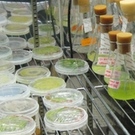
The 51st annual meeting of the American Society of Hematology (ASH) kicks off in two weeks in New Orleans. The meeting will feature presentations on the latest in peer-reviewed multiple myeloma research, December 5 through December 8.
ASH annual meetings keep hematologists up to date on research and treatment advances from the past year. According to ASH, the meeting has “a superb educational program,” “cutting-edge scientific sessions,” and presentations that “contain the latest and most exciting developments in scientific research.” …
Read the full story »

In the July issue of Current Opinion in Hematology, Dr. Donna E. Reece of the Princess Margaret Hospital in Toronto, Canada reviewed the current approaches to treating newly diagnosed multiple myeloma patients.
In the review, Dr. Reece discussed autologous and allogeneic stem cell transplants for younger patients and treatment options for older patients. This Beacon article focuses on Dr. Reece’s findings about allogeneic stem cell transplants. Findings about autologous stem cell transplants were discussed in a previous Beacon article. …
Read the full story »

Many important advances in the treatment of multiple myeloma have been made in recent years. In the July issue of Current Opinion in Hematology, Dr. Donna E. Reece of the Princess Margaret Hospital in Toronto, Canada reviewed the current approaches to treating newly diagnosed multiple myeloma patients.
In the review, Dr. Reece discussed autologous and allogeneic stem cell transplants for younger patients and treatment options for older patients. This Beacon article focuses on Dr. Reece’s findings about autologous stem cell …
Read the full story »

In a recent phase 2 clinical trial published in the journal Leukemia and Lymphoma, ten out of 23 participants with recurring multiple myeloma or other plasma cell cancers reached partial or complete remission on a steroid-free treatment regimen of Velcade (bortezomib), Doxil (doxorubicin liposomal), and thalidomide (Thalomid). The scientists at the State University of New York who performed the trial were looking for a treatment for people who cannot tolerate steroids.
Steroid-based drugs such as dexamethasone …
Read the full story »

The International Myeloma Working Group (IMWG) recommends that multiple myeloma patients should have their stem cells collected within four cycles of therapy with Revlimid (lenalidomide), thalidomide (Thalomid), or Velcade (bortezomib). Otherwise, these drugs may interfere with stem cell collection. The recommendations were published in the journal Blood in August.
During an autologous stem cell transplant, physicians collect a patient’s stem cells in the early stages of the patient's anti-myeloma drug regimen, and return these same cells to the individual after …
Read the full story »

The latest research shows that resveratrol, one of the major active compounds in red wine, may effectively kill myeloma cells. But while drinking red wine has been proven to lower the risk of some cancers, the effects of red wine have not been studied in relation to multiple myeloma. The next step for resveratrol–clinical trials–has just begun.
Resveratrol is a type of polyphenol, which is a plant compound that has anti-oxidant properties. Grape skins have high concentrations of resveratrol, which …
Read the full story »

In a series of basic science experiments, researchers discovered a protein, GRP-78, that is responsible for resistance to Velcade (bortezomib) treatment in some solid tumor cancers. The study was published in the journal Blood last Thursday.
Perhaps one reason why Velcade is especially effective in treating multiple myeloma is because myeloma cells do not secrete GRP-78. Nevertheless, some people with multiple myeloma are resistant to Velcade treatment. This research, besides finding important knowledge about a variety of cancers that …
Read the full story »

